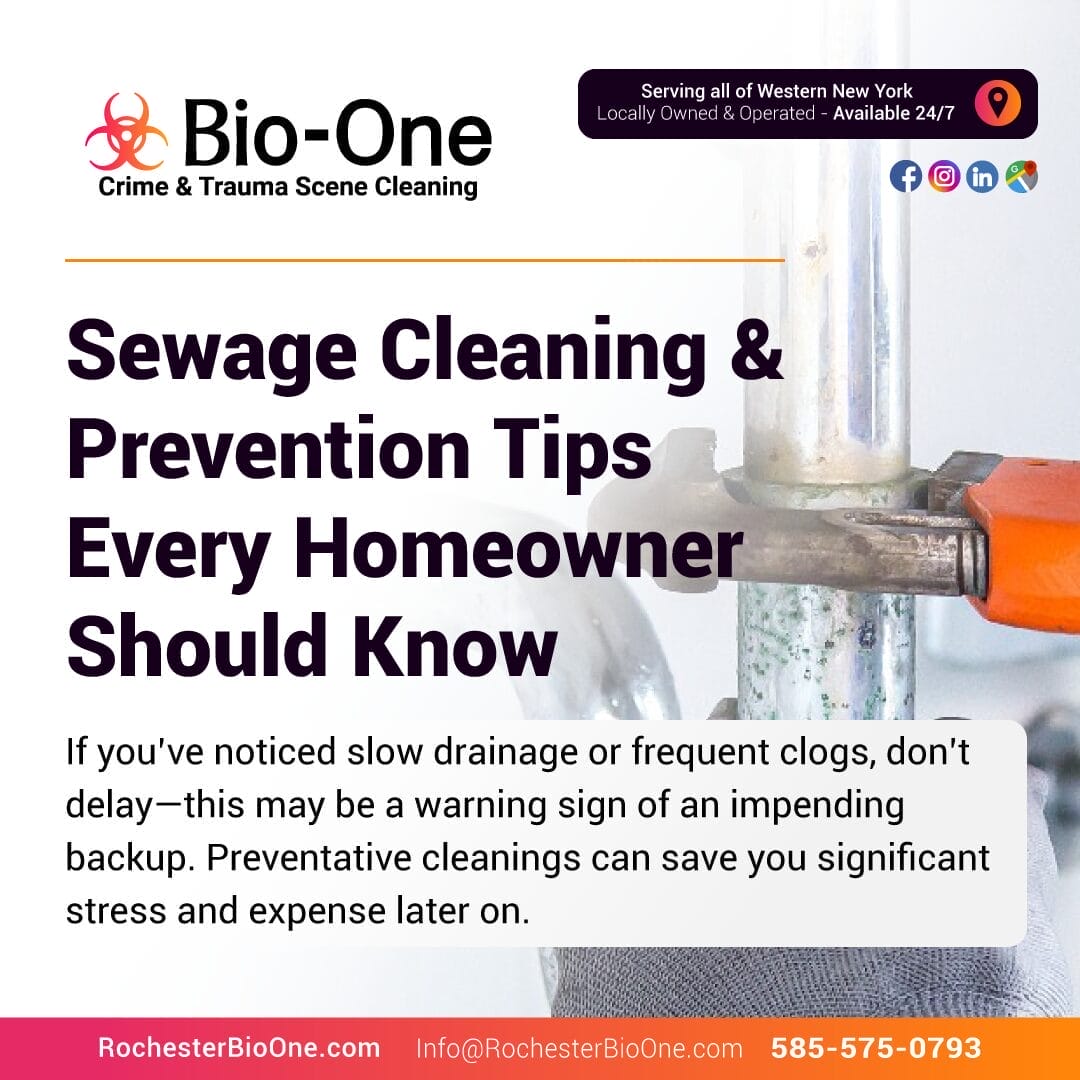
Dealing with a sewage backup can be a homeowner or property manager's worst nightmare. Not only is it unpleasant and stressful, but it can also be costly to fix and may cause extensive property damage if left unchecked. The good news? Many of these issues are entirely preventable with the right knowledge and practices.
This blog will help you understand common causes of sewer backups and offer practical tips to prevent them. By taking a proactive approach, you can protect your home and provide peace of mind.
Common Causes of Sewer Line Issues
Before we get to the tips, it’s helpful to know what typically causes sewage problems in the first place. Understanding these culprits can help you better prevent them:
- Tree Roots: Tree roots naturally grow toward moisture, and your sewer line is the perfect target. Roots can invade pipes through tiny cracks or joints, eventually causing blockages or even pipe rupture.
- Grease and Oil: Pouring grease, oil, or fat down the drain might seem harmless, but over time, these substances solidify and create clogs in your pipes.
- Flushed Items: Flushing non-biodegradable items such as wipes, feminine products, or paper towels can lead to serious blockages. Even “flushable” items are often not sewer safe.
- Aging Pipes: Older sewer systems are vulnerable to deterioration or cracks, increasing the likelihood of backups over time.
- Heavy Rainfall: During heavy storms, municipal sewer systems may become overwhelmed, causing backups in homes or buildings.
Understanding these causes sets the foundation for taking informed steps to prevent problems.
Simple Tips to Prevent Sewage Backups
1. Be Careful What You Flush
It might seem obvious, but in a busy household, it's easy to forget. Toilets are designed for human waste and toilet paper—nothing else. Wipes labeled as "flushable," feminine hygiene products, and paper towels are notorious culprits for clogging sewer lines.
Tip: Place a small trash bin in each bathroom to encourage proper disposal of non-flushable items.
2. Avoid Pouring Grease Down the Drain
When grease or oil is washed down the drain, it cools and hardens inside your pipes. Over time, this sticky residue builds up and restricts water flow.
Tip: Pour leftover grease into a disposable container, such as an old jar, and throw it away in your trash instead.
3. Conduct Regular Pipe Maintenance
Routine maintenance can catch small issues before they escalate into costly backups.
Tip: Schedule professional sewer line inspections every few years, especially if your home is older or has large trees nearby. Experts can use cameras to spot blockages or cracks early.
4. Install a Backwater Valve
A backwater valve is a simple yet effective device that prevents sewage from backing up into your home. It’s a wise investment, particularly if you live in an area prone to flooding.
Tip: Ask your plumber about installing a backwater valve to provide an added layer of protection.
5. Be Mindful of Landscaping
Trees can be a beautiful addition to your property, but their roots often spell trouble for underground sewer lines.
Tip: Avoid planting trees or bushes near your sewer lines. If you’re unsure where your sewer lines run, consult a professional service.
6. Clear Gutters and Drains
Clogged gutters and yard drains can lead to standing water, which might infiltrate your sewer system during storms.
Tip: Regularly clean out leaves and debris from your gutters and outdoor drains, especially before rainy seasons.
7. Invest in Professional Cleaning Services
If you’ve noticed slow drainage or frequent clogs, don’t delay—this may be a warning sign of an impending backup. A professional sewage cleaning service can provide a comprehensive assessment and preventative cleaning to keep your system in top condition.
Tip: Don’t wait for an emergency. Preventative cleanings can save you significant stress and expense later on.
What to Do in Case of a Sewage Backup
Even with the best preventative measures, sewage backups can still happen. If the worst occurs, stay calm and follow these steps to minimize damage and ensure your safety:
- Avoid using any plumbing in your home until the issue is resolved.
- If possible, prevent contaminated water from spreading by closing doors or blocking access to affected areas.
- Contact a licensed plumber or sewage cleaning service immediately to fix the problem.
- Thoroughly sanitize all affected areas after repairs are made to prevent health hazards.
Protect Your Home and Your Peace of Mind
Sewage backups don’t just threaten your property—they can also disrupt the comfort and safety of your home. Thankfully, you can avoid many common issues by following these simple prevention tips. Small changes, like watching what you flush or scheduling routine maintenance, can make a big difference in the long run.
If you want professional support in keeping your sewer system healthy, don’t hesitate to reach out. Our dedicated cleaning experts are here to help with compassionate, professional service that restores peace of mind. Protect your home and your family—contact us today for a free consultation.


